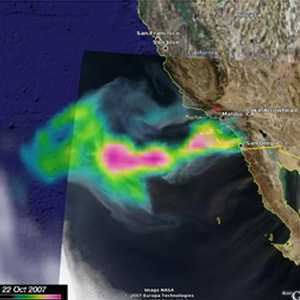
NASA satellites continue to capture remarkable new images of the wildfires raging in Southern California. Aura's OMI images show the smoke aerosol layer generated by the fires in Southern California as it drifts over the Pacific Ocean.
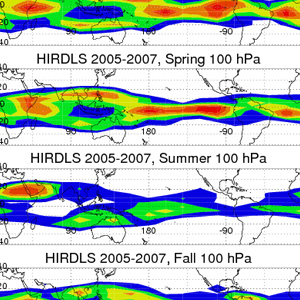
Recent observations by the HIRDLS and CALIPSO experiments provide more detailed observations of the subvisible cirrus. This information will help describe the physics of cirrus formation, and possible future changes in stratospheric and upper tropospheric water vapor.
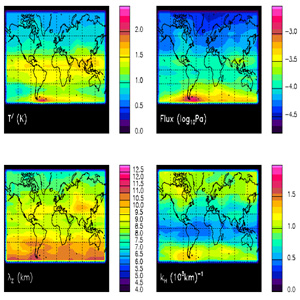
The HIRDLS instrument aboard the Aura satellite is measuring temperature profiles of the atmosphere, revealing small-scale atmospheric buoyancy waves (also known as "gravity waves") in fine detail.
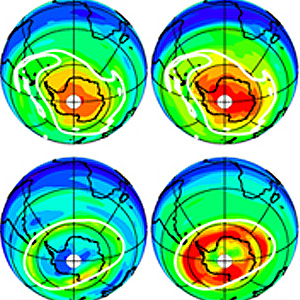
Prolonged low temperatures in September 2006 increased by the longevity of 'active chlorine', leading to a record area and depth of the ozone hole.
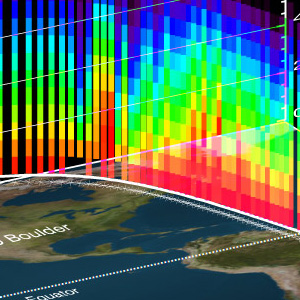
For the first time, NASA scientists have used a shrewd spaceborne detective to track the origin and movement of water vapor throughout Earth's atmosphere.